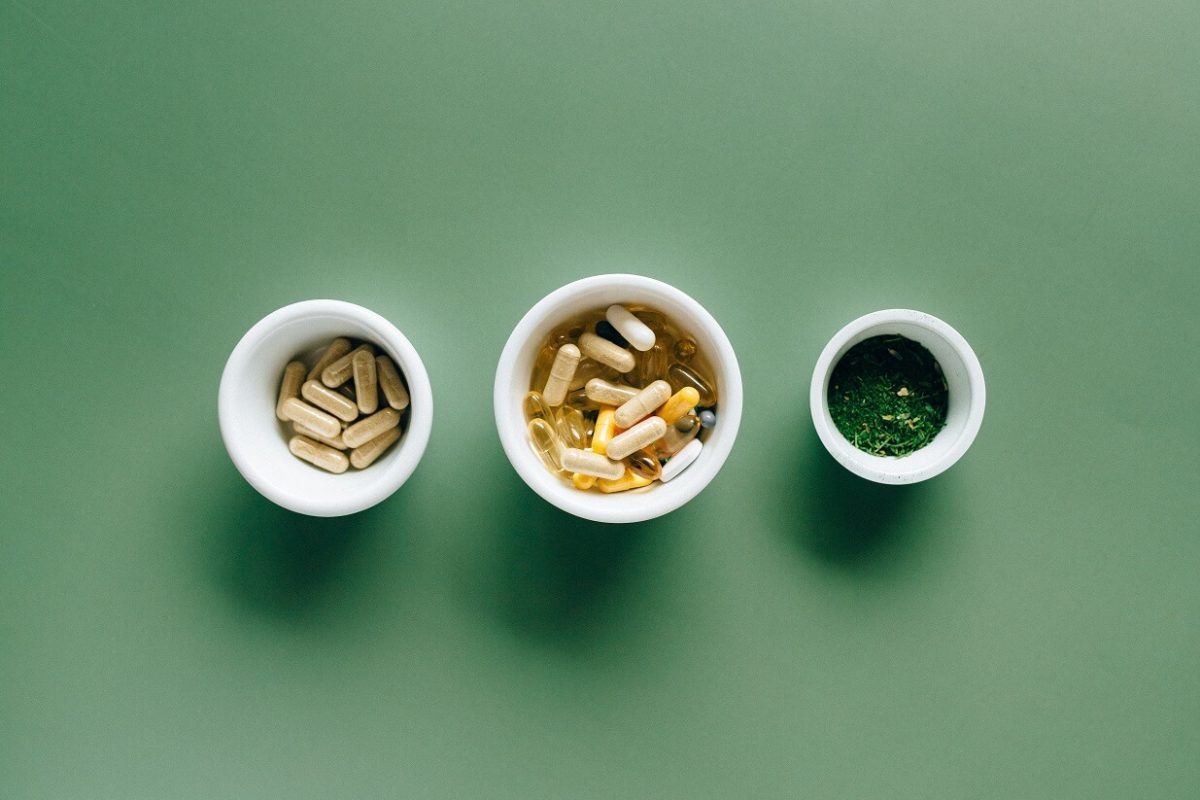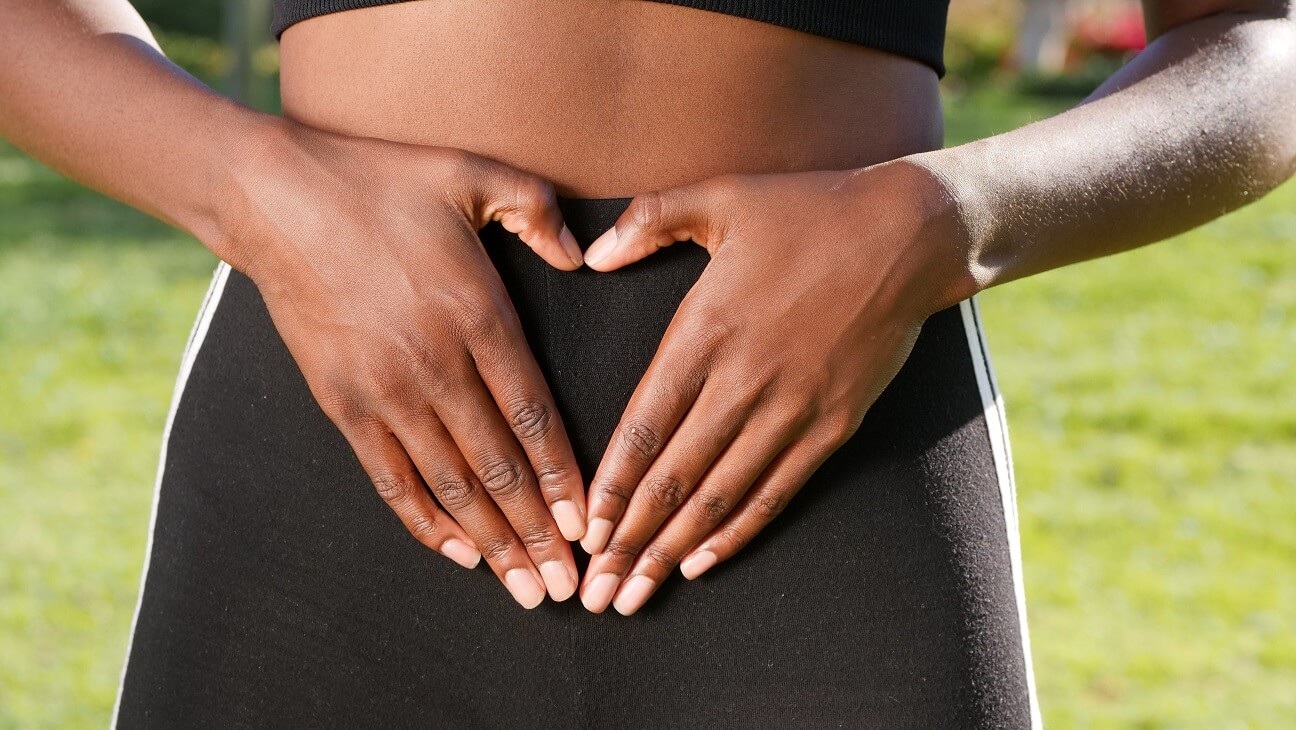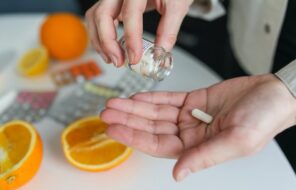These days, plenty of information about supporting your health exists. For instance, there are some interesting health benefits of taking cold showers and compelling reasons to feel confident taking mental health days.
You may have also heard about probiotics and prebiotics, which can support your health differently. If you need some clarification about the differences between the two, we’re here to help. Read on to learn more about probiotics and prebiotics, including what they are, how to add them to your diet, and whether you should expect side effects.
Probiotics vs. prebiotics
| Probiotics | Prebiotics |
|---|---|
| Made up of living “good” bacteria | Fuel for the good bacteria found in probiotics |
| Boosts gut health and digestion | Stimulates growth of good bacteria |
| Found in sauerkraut, kombucha, kefir, miso soup, pickled vegetables | Found in bananas, onions, garlic, berries, beans, oats, asparagus, dandelion greens |
Probiotics
Probiotics are made up of living bacteria, which initially sounds kind of unappealing. But those microorganisms are beneficial for your gut and your entire digestive system. That’s because probiotics contain good bacteria, which may help improve digestion.
Probiotics can be found in certain foods, like sauerkraut, kombucha, kefir, miso soup, or pickled vegetables. You can also take probiotics as a supplement if you’d rather not get them from fermented foods (these may not appeal to everyone).
Prebiotics
Prebiotics, on the other hand, can be thought of as fuel for the good bacteria that are in probiotics. Consuming prebiotics means that good bacteria in your digestive system can “feed” on the plant fibers that prebiotics offer. In fact, without prebiotics, probiotics won’t do you much good.
You’ll get plenty of prebiotics if you eat bananas, onions, garlic, berries, beans, oats, asparagus, and even dandelion greens. The skin on an apple contains prebiotics, too, so be sure to eat the whole apple next time you sink your teeth into one.
Should you take probiotic supplements?

Deciding whether or not to take probiotic supplements is a personal choice. You may not need a supplement if you’re getting plenty of fermented foods in your diet.
Some research has shown that people who experience diarrhea due to antibiotic use can benefit from probiotics. Probiotics may also help treat periodontal disease and even help people with ulcerative colitis experience remission periods.
Other conditions that may benefit from probiotic supplements include constipation, inflammatory bowel disease, irritable bowel syndrome, certain allergies, asthma, acne, and more.
Side effects of probiotics and prebiotics
Generally speaking, probiotics should be safe for most people to consume. However, people who are immunocompromised or have critical conditions may want to avoid probiotics. Complications could potentially develop, including infections or resistance to antibiotics. Keep in mind, though, that more research is needed here. If you’re unsure whether to take supplements or add more probiotic foods to your diet, consult with your doctor for personalized advice.
Similarly, prebiotics are typically safe to consume. Prebiotics are in certain types of food that generally contain a lot of fiber. Because of that, some people might experience gas, stomach pain, a bloated feeling, or diarrhea after eating prebiotic-rich foods.
Reaping the benefits from prebiotics and probiotics
To make the most of your probiotics and prebiotics, you’ll want to consume both of them regularly. You may want to consider incorporating dietary or lifestyle changes if you want to reap the most health benefits from prebiotics and probiotics.
That can mean eating more kefir or yogurt that contains live cultures, for example. And be sure to buy refrigerated foods if you want to add probiotics. Non-refrigerated foods are usually pasteurized, which kills off all that beneficial bacteria. If you’re taking a probiotic supplement, follow the manufacturer’s directions regarding dosage.
Be sure to incorporate more prebiotic-rich foods into your daily diet, too. This may mean branching out and trying foods like Jerusalem artichokes, mushrooms, leeks, mustard greens, guava, barley, flaxseeds, and other delicious (and nutritious!) options. You can even get prebiotics from green, black, and oolong tea. Honey has prebiotics, too, so you can get a double dose by mixing a bit of honey with your favorite green tea.
Prebiotics and probiotics work together
Probiotics contain live bacteria good for your gut, and prebiotics provide nourishment for that beneficial bacteria. Remember that these two work together and must be consumed regularly to gain the benefits.
In general, you probably won’t experience side effects from either one, so they’re pretty safe to consume. As always, if you’re considering making significant changes to your diet or have any health concerns, it’s best to chat with your doctor first.





